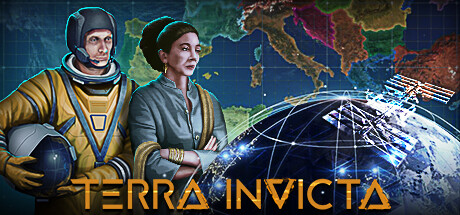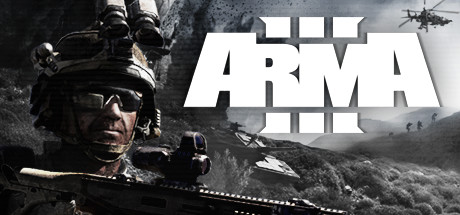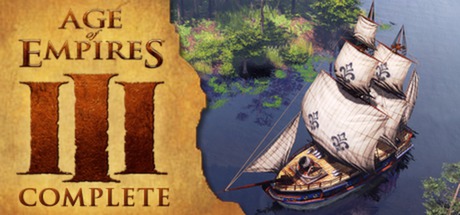Terra Invicta Reviews
From the creators of Long War, an alien invasion has fractured humanity into seven ideological factions each with a unique vision for the future. Lead your chosen faction to take control of Earth’s nations, expand across the Solar System, and battle enemy fleets in tactical combat.
| App ID | 1176470 |
| App Type | GAME |
| Developers | Pavonis Interactive |
| Publishers | Hooded Horse |
| Categories | Single-player, Steam Achievements, Steam Cloud, Steam Trading Cards, Steam Workshop |
| Genres | Strategy, Simulation, Early Access |
| Release Date | 26 Sep, 2022 |
| Platforms | Windows |
| Supported Languages | French, German, Spanish - Spain, Simplified Chinese, Traditional Chinese, Japanese, English, Polish |

6 560 Total Reviews
5 257 Positive Reviews
1 303 Negative Reviews
Mostly Positive Score
Terra Invicta has garnered a total of 6 560 reviews, with 5 257 positive reviews and 1 303 negative reviews, resulting in a ‘Mostly Positive’ overall score.
Reviews Chart
Chart above illustrates the trend of feedback for Terra Invicta over time, showcasing the dynamic changes in player opinions as new updates and features have been introduced. This visual representation helps to understand the game's reception and how it has evolved.
Recent Steam Reviews
This section displays the 10 most recent Steam reviews for the game, showcasing a mix of player experiences and sentiments. Each review summary includes the total playtime along with the number of thumbs-up and thumbs-down reactions, clearly indicating the community's feedback
Playtime:
2178 minutes
I desperately want to like this game, but unfortunately, it kinda sucks.
The AI doesn't seem to recognize the same resource limits you do, so no matter what they'll always have the upper hand. The calculations are exactly like XCOM: You'll fail 90%+ missions way more than 10% of the time. The tutorial is useless. Difficulty settings apparently do nothing. You spend 90% of your time just reinforcing your control points. The UI requires seven master's degrees to understand, and most of the useful stuff you need is buried so deep you'll never find it. There aren't enough players to find any decent guides or how-to's to help you figure out anything.
The concept is great. The execution is not.
👍 : 5 |
😃 : 1
Negative
Playtime:
12641 minutes
Impressive depth and interlocking systems, can get tedious towards mid game. There usually is a way to rubberband and get back after suffering losses, but not for those prone to ragequit in frustration.
👍 : 1 |
😃 : 0
Positive
Playtime:
13870 minutes
Greatly detailed game where one campaign can last over 100hrs. Accurately portrays how humanity can splinter in the face of crisis
👍 : 1 |
😃 : 0
Positive
Playtime:
23902 minutes
Incredible game. Not for everyone. But for those that love it: incredible.
👍 : 1 |
😃 : 0
Positive
Playtime:
2207 minutes
The game's core premise is really promising.
Essentially: XCOM but from a GSG/4X perspective. With space warfare and base building.
It is in Early Access yes, but it actually feels content rich and rather polished already.
However, everything takes far too long.
According to the game's description, the average campaign could take up to 100 hours. There's an option for an accelerated campaign, which reduces that to 50 hours. Better, but still too long.
The core gameplay loop isn't motivating enough to keep you going for that long.
In the early campaign, during the pre-space, your actions mostly come down to setting your agent tasks twice a month and then hitting maximum speed waiting for the month to pass. In the early space phase this is joined by mostly waiting for your probe/initial habitat to reach location X in hundreds of days, and constructing it over another y days. It's all for the promise that it will eventually get more fun when you can finally face the aliens head on. Which it does, but with far too few guidelines for new players or those who don't want to delve into endless number sheets.
Likewise, the massive amount of entries in the tech tree don't make research feel rewarding. They're overwhelming, especially since some of them are just bonuses of a certain percentage to something or another tier of an existing tech. There is also no easy way for the player to see which fission core, for example, is superior to the others. You either need to memorise their progression or check the tech tree frequently. Reducing the number of entries in the tech tree would certainly improve the user experience.
The story itself is great. Figuring out what the aliens want and what they can do, as well as their growing influence on the Earth's nations and their terraforming of the terrain, is all great. However, playing as different factions barely affects the gameplay. Only the Servant Faction seems to offer meaningfully different gameplay; for all the others, it basically comes down to whether you oppose the aliens directly, remain indifferent to them or try to convince them of your worthiness.
As it stands, sadly, I can't really recommend this game to anyone but the most hardcore GSG/4X player who loves to lose themselves in min-maxing their ship and base setups.
I'll definitely review this again after some more patches though
👍 : 2 |
😃 : 0
Negative
Playtime:
72597 minutes
its two games in one. One to control earth with your agents and armies and the other in space with your outposts and fleets. Each of them would be a excellent game by itself. The two together are phenomenal.
👍 : 5 |
😃 : 0
Positive
Playtime:
7124 minutes
I bought the game nearly three years ago, and I did a full run with the "Servants". I was totally in love with the concept and the scope of the game. I had high hopes for this one.
Three years later, I fail to see any meaningful progress. None of the shortcomings, particularly in terms of UI, have been resolved. Worse still, the game now crashes on a regular basis (especially when saving), making the experience particularly painful. I'm tempted to say I'll change my review if things change, but given the progress made in 3 years, I don't believe it.
Another early access that will never progress in years, and will finally be "released" without any improvement.
👍 : 17 |
😃 : 0
Negative
Playtime:
1765 minutes
Terra Invicta, developed by Pavonis Interactive and published by Hooded Horse, is an ambitious and cerebral grand strategy game that boldly attempts to answer one of the most compelling questions in science fiction: how would humanity respond to the arrival of an alien presence on Earth? Set in a near-future world suddenly facing an extraterrestrial incursion, the game challenges players not just to wage war or manage resources, but to navigate a complex geopolitical web, guide humanity's political and scientific evolution, and ultimately decide the fate of the solar system. With its unprecedented scale, deep systems, and player-driven narratives, Terra Invicta offers a uniquely rewarding experience — though one that demands patience, time, and a strategic mind to fully appreciate.
At the heart of Terra Invicta is its asymmetric geopolitical simulation. Players take control of one of seven factions, each representing a different philosophical response to the alien threat. From the idealistic "Resistance," who seek to unite Earth and defend humanity, to the sinister "Servants," who welcome alien domination, each faction has its own goals, strategies, and endgame conditions. This variety in ideology leads to drastically different playstyles and motivations. Unlike many strategy games where all players share the same victory conditions, Terra Invicta presents a dynamic, multi-factional chessboard where ideology shapes action as much as power does. You’re not just fighting aliens — you’re also outmaneuvering rival factions who may want to collaborate with, manipulate, or destroy them (and you).
The early game focuses on Earth’s geopolitical landscape. This portion plays like a hybrid of Hearts of Iron and XCOM with an extra layer of political intrigue. Players deploy a cast of agents — scientists, diplomats, spies, military commanders — to infiltrate nations, control governments, manipulate public opinion, steal technology, and conduct espionage. You vie for influence over countries and regions, taking over their policy decisions, militaries, and research priorities. The Earth-level gameplay is a test of soft power: can you gain enough influence without provoking nuclear war or alien reprisal? The way Terra Invicta simulates global politics — including coups, crackdowns, propaganda, and economic shifts — is impressively complex, and rewards players who think three steps ahead.
As the game progresses and humanity begins to reach out into space, Terra Invicta opens up into a second, even more intricate layer: space colonization and warfare. Players must establish orbital stations, mining colonies, and research outposts on the Moon, Mars, the asteroid belt, and beyond. Every celestial body in the solar system is explorable and exploitable, and logistical planning becomes critical. Resources must be carefully extracted and transported; supply lines between distant colonies and Earth need to be maintained; spacecraft must be designed from scratch, balancing thrust, armor, weapons, and delta-v to survive in hostile environments. The space mechanics borrow inspiration from Kerbal Space Program in their realism — orbital dynamics, travel times, and fuel calculations all matter. It's a brilliant evolution from early-game geopolitics to late-game interstellar strategy.
Combat, both on Earth and in space, is methodical and systems-driven. On Earth, battles are abstracted and resolved through military control and influence over nation-states. In space, however, the game turns into a highly detailed ship-to-ship tactics simulator. Players design ships component by component, then command fleets in 3D engagements where range, positioning, and maneuvering are critical. Space battles are rare but tense, slow-burning affairs that feel more like submarine warfare than traditional RTS-style encounters. The sense of scale and realism — missiles taking minutes to reach targets, ships rotating in orbit before firing — adds gravitas to each conflict. You're not just commanding troops; you're directing the future of a species teetering between annihilation and ascendance.
The technological tree is massive, thematically rich, and intricately connected. Research is divided among various global councils and agencies, with control over certain nations granting access to different research priorities. Players must coordinate global scientific efforts while also pushing their faction’s secret agendas. Tech unlocks include new propulsion systems, genetic modification, economic restructuring, and alien reverse engineering — each with cascading consequences. You’re not just discovering new tech; you’re steering human evolution in a specific direction, and that can come with ethical, political, and practical risks.
Visually, Terra Invicta is utilitarian rather than flashy. The interface is dense, packed with menus, charts, and data — often overwhelming for new players. But once you acclimate, the UI becomes a powerful toolset for managing a deeply complex simulation. The Earth map is clean and readable, and the solar system view is striking in its detail, showing real planetary orbits, eclipses, and deep-space maneuvers. The aesthetic is functional and realistic, reinforcing the game’s tone: this is not a space opera but a hard sci-fi sandbox where consequences matter and choices ripple across decades.
Sound design is atmospheric, with a subdued, ambient soundtrack that suits the game’s slow-burn pacing. Audio cues are helpful and unobtrusive, though not particularly memorable. Voice acting is minimal, and narrative storytelling is mostly emergent — you create the story through your decisions, alliances, and catastrophes. While some players may miss the cinematic flair of other alien invasion games, Terra Invicta trades spectacle for substance.
There are, however, areas where the game still shows its early-access roots. AI behavior — both alien and human — can sometimes be inconsistent or easily exploitable. Performance can slow down in the late game, particularly as the simulation scales up to encompass the entire solar system and dozens of colonies. Tooltips and explanations for certain mechanics remain unclear, and the sheer learning curve is steep. This is a game that demands reading guides, making mistakes, and investing hours before the systems fully click. But for those willing to push through the initial complexity, Terra Invicta offers an unmatched strategic experience.
In conclusion, Terra Invicta is a bold, sprawling grand strategy game that pushes the genre into new territory. With its fusion of geopolitical maneuvering, hard science fiction, and system-driven gameplay, it offers a deeply intellectual and satisfyingly open-ended experience. It’s not a game for everyone — it requires time, patience, and a willingness to think several layers deep — but for players who love games like Crusader Kings, XCOM, and Kerbal Space Program, Terra Invicta represents a triumphant and ambitious experiment. It may not yet be perfect, but it is undoubtedly one of the most original and rewarding strategy games in recent memory — and a promising foundation for a franchise that could redefine what strategy games can be.
Rating: 8/10
👍 : 17 |
😃 : 0
Positive
Playtime:
36872 minutes
do you like when a game make you get half way though and want to restart because you now understand some specific function ? then this is the game for you
👍 : 23 |
😃 : 4
Positive
Playtime:
6631 minutes
As background, I am a married professional with an advanced degree. I don't have a family, I have friends, and I have hobbies outside of gaming. Finally, at the time of this review, this game is still in early access (about to hit v 0.5).
Put simply, this is a game of incredible scope, incredible creative potential, poignant commentary of the future of humanity... and it simply doesn't respect my time. Notice that I said *my* time, rather than the second-person *your* time, because there are undoubtedly people out there with a greater tolerance than I within their schedules and their psyche. I'm going to focus on the elements of this game that led to this opinion.
UI:
- It is made up of what look like windows, but you can't use them as such - each information panel is its own thing, even though they're made to look like windows. You can't detach them, you can't put two panels next to another, and closing one 'window' means that you have to go back through the same path you originally took to open it, if you quickly want to peek at some other bit of information buried in another menu. This adds tens of thousands of potentially unnecessary back-and-forth clicks throughout a playthrough.
- Duplicative menus. Menus for confirming an action in some cases means clicking a menu that would appear to have what you need, and then being shown a submenu that looks pretty much the same, followed by forcing an extra click to ensure that the action or item you wanted is the one selected, before then clicking essentially a 'confirmed' button. This is most obvious on the screens when selecting what outpost landing site one wants to go to on a body in the solar system. It also is present to some degree on Earth, where selecting a councilor to conduct an action on a particular country sometimes automatically selects the wrong country, and if one doesn't notice this happening, one can have a councilor do an action in the wrong country, because one forgets to confirm what country is selected prior to confirming an action. All of this adds up to tens of thousands of extra clicks.
- Sorting functions are implemented in many informational windows, but not all, so quickly sorting information this way is impossible in some situations, leading to much pointless scanning of rows of text.
Gameplay:
- There exist 'automate' functions for the key avatars of your faction (your councilors), but it is just on or off, and it seems not to allow automation of the things that are actually the most annoying to micromanage as time goes on: pop-up alien sightings, alien xenoflora growth, and dealing with other factions' councilors. Granular control over automation, and more extensive use of it as time goes on, would save many tens of thousands of clicks over the course of a playthrough.
- Ship combat features node-base maneuvers, but on-demand weapon firing, which makes no sense in game that is trying its best to feature a simulation of real-time space-based combat. Auto-resolving fights in space is also hilariously terrible when using certain types of ships (lots of times, at the beginning of the game, an inferior human force can actually defeat alien ships using well-time missile barrages... this is not appropriately simulated in the 'auto-resolve battle' function). And if you want to go full-manual, the whole ship combat experience becomes difficult to use once there many large, complicated vessels onscreen.
- Shipbuilding could use a lot of work. There are insane amounts of data presented on drives and powerplants, without clear context of what is actually useful in the player's specific situation, and how it compares to other such items in a visually obvious manner. Add to this the sheer number of ship stat variables being presented to you onscreen, and you begin to realize why many players click the 'autobuild' option (which is terrible, by the way).
- The tech tree is absolutely monstrous. The fact that the in-game tech tree slows the game down when you try to open it fully is probably a sign it needs to be streamlined, simplified, and better arranged. You have to basically use an online, external, fan-made tech tree to discover what paths to take efficiently to a desired technology, which completely takes you out of the experience of the simulation this game's trying to create. It also wastes a butt-load of time.
- Multitasking begins to wear on the player after a while. Earthly affairs continue to auto-pause the game when one's attention is firmly affixed on the solar system, and the lack of meaningful automation of councilors exacerbates how much this affects strategic flow in the player's mind. It is also a time-sink.
There are many other things I could write in a review of a game I've played for over 100 hours. However, I still haven't been able to complete a campaign (while also spending many hours outside the game reading articles and watching videos on how to do so), and I've just had to call it quits. Similarly, this review is dragging on. You get the idea: if you have great memory that lasts over weeks of real-time campaigns; if you are introverted; and if you work relatively short hours - then the positives of this game outweigh the issues above. Otherwise, I believe they currently do not.
As a sidenote: the fact that you have to be pretty educated to even understand much of the political and physics jargon in here narrows the field further, in my view, since you're just not going to get 15-year-olds without a job to pick this game up... at which point one starts to ask: what is the future for this proverbially most 'dad-like' of 'dad-game', if early access (ever) ends? How will actual dads (or moms), or wage-slaves in general ever find time to play it? If devs get money at every stage based on hopium, does it even matter to them, really? Are there really enough no-lifers to sustain the game, in general? Then again... how the hell is an equally-horrible time-sink like Rimworld still getting DLCs?
👍 : 99 |
😃 : 6
Negative







